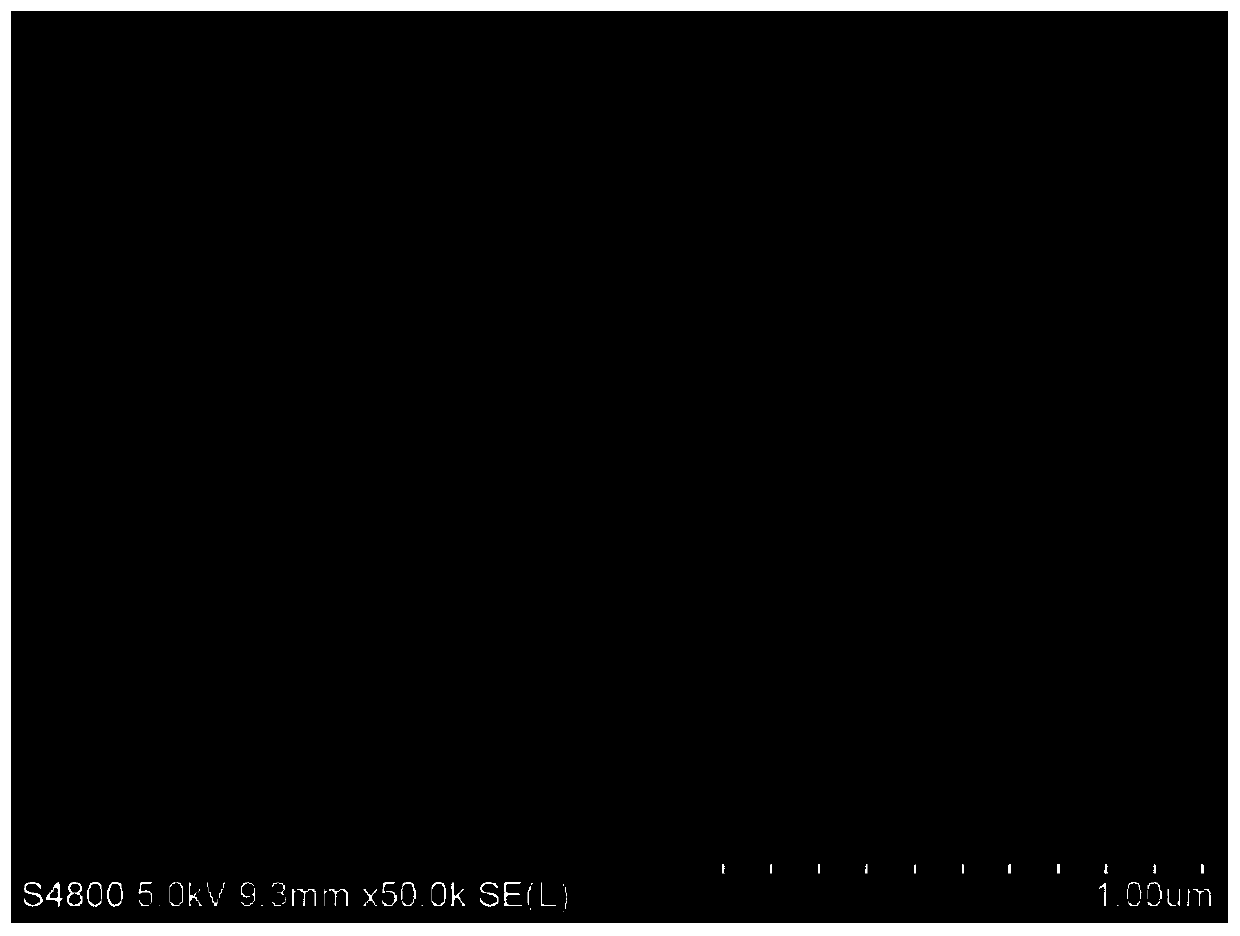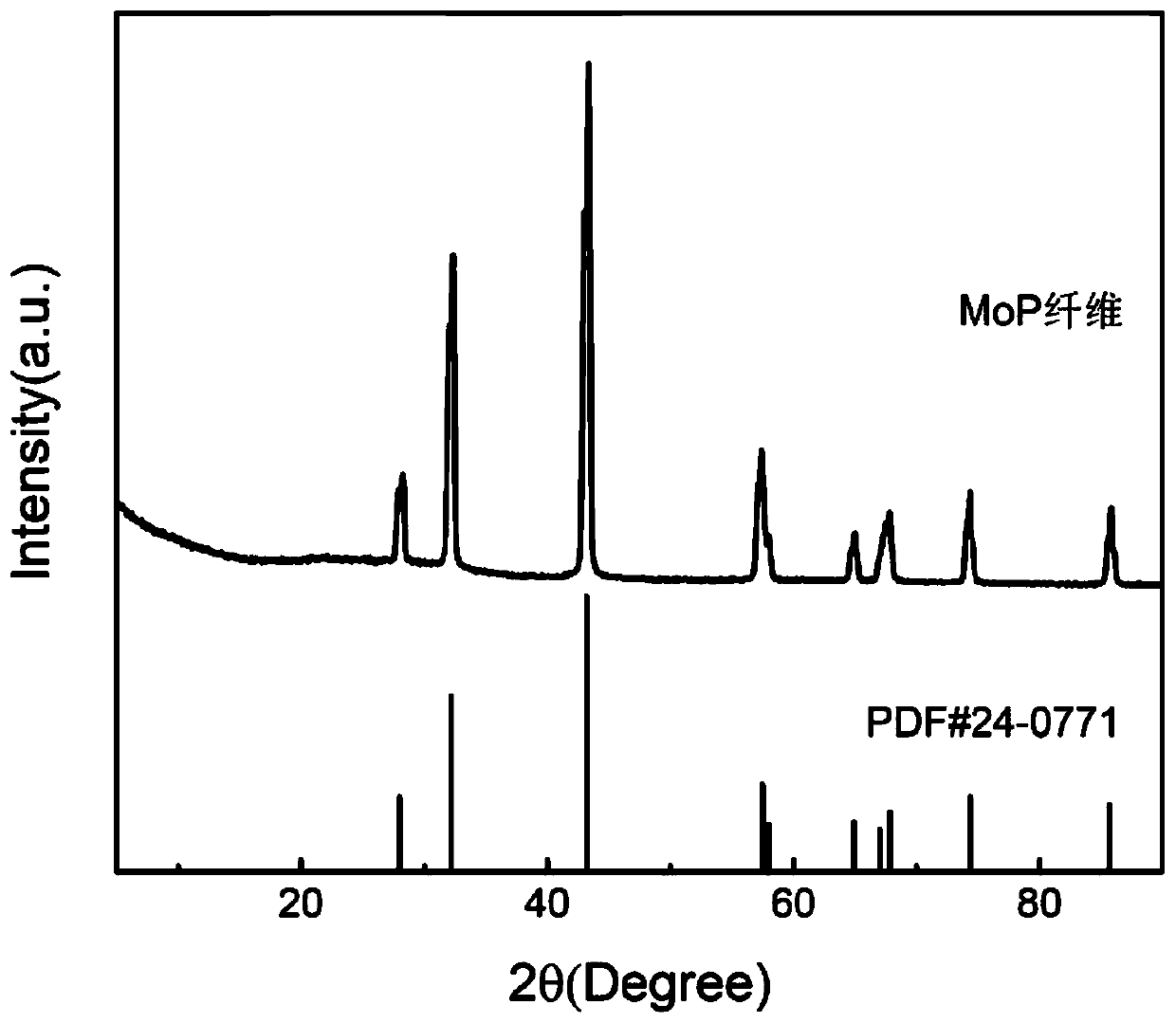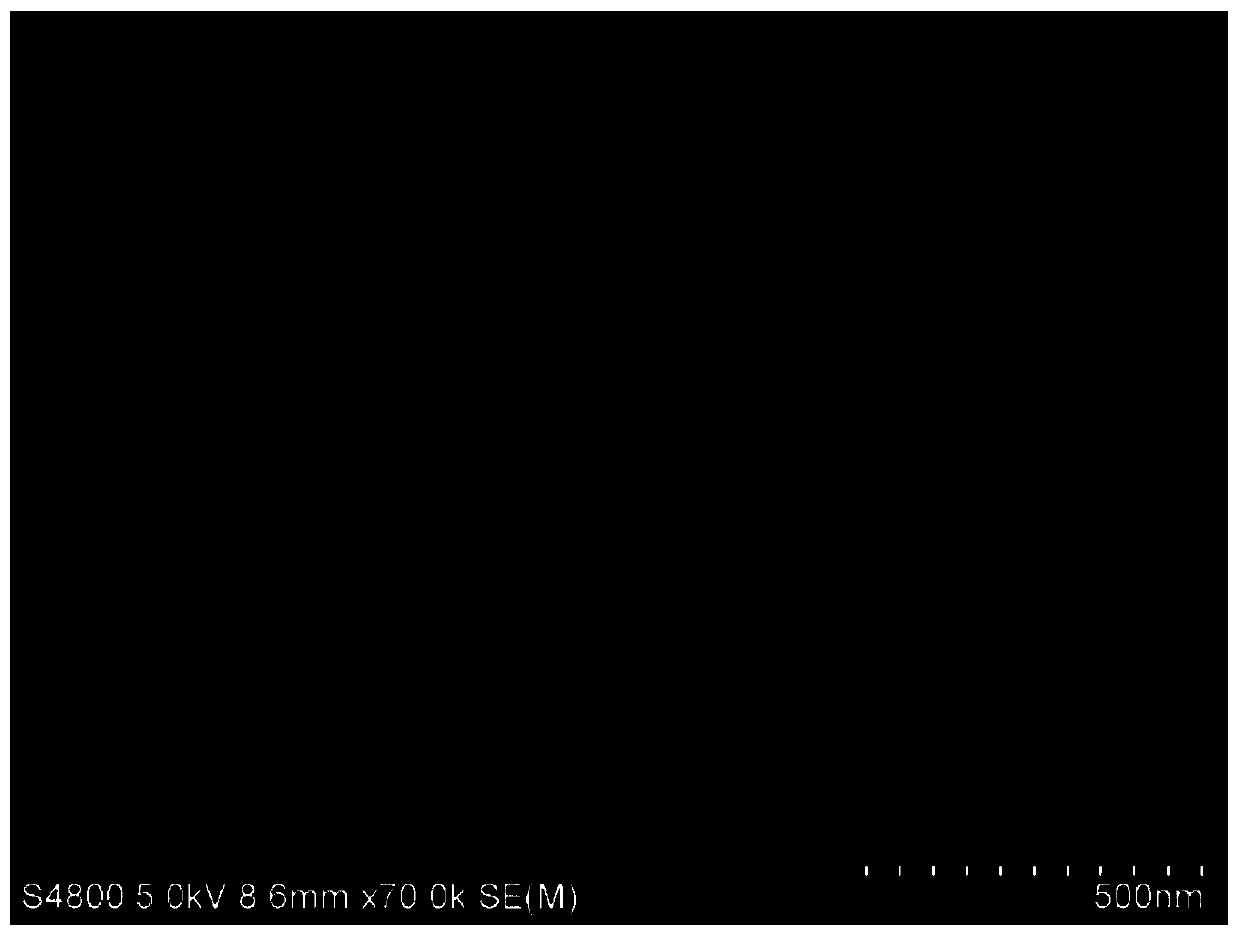Metal phosphide nanofiber and preparation method thereof
A metal phosphide and nanofiber technology, applied in the chemical characteristics of fibers, textiles and papermaking, etc., can solve the problems of polluting the environment, entering phosphine gas, endangering health, etc., and achieving large specific surface area and controllable structural units. Effect
- Summary
- Abstract
- Description
- Claims
- Application Information
AI Technical Summary
Problems solved by technology
Method used
Image
Examples
Embodiment 1
[0025] 1) Dissolve 0.8g of PVA in 10ml of deionized water, heat and stir to 70°C to form a uniform PVA solution.
[0026] 2) Get ammonium molybdate powder (H 24 Mo 7 N 6 o 24 4H 2 O) 0.883g, phytic acid 0.550g (the ratio of the amount of Mo and P is 1:1) was added to the above PVA solution together to obtain a mixed solution.
[0027] 3) Add 0.1ml Triton-X-100 surfactant to the above mixed solution, stir evenly to form spinning precursor solution.
[0028] 4) Pour the spinning precursor solution in step 3) into the syringe, debug the instrument to carry out electrospinning, the parameters of the electrospinning are: the distance from the spinning needle to the collecting plate is 15cm, the spinning voltage is 20kV, and the spinning solution Flow rate 0.3mL / h. After electrospinning, the precursor nanofibers on the plate are stripped.
[0029] 5) Heat treatment of the precursor nanofibers, the heat treatment process is: in Ar / H 2 Mixed atmosphere (volume ratio of 95% Ar ...
Embodiment 2
[0032] 1) Dissolve 0.9g of PVA in 10ml of deionized water, heat and stir to 70°C to form a uniform PVA solution.
[0033] 2) Take cobalt chloride powder (CoCl 2 ·6H 2 O) 1.189g, and 0.550g of phytic acid powder (the ratio of the amount of Co to P is 2:1) were added to the above PVA solution together to obtain a mixed solution.
[0034] 3) Add 0.05ml of Triton-X-100 surfactant into the above mixed solution, and stir evenly to form a spinning precursor solution.
[0035] 4) Pour the spinning precursor solution in step 3) into the syringe, and debug the instrument to carry out electrospinning. The parameters of the electrospinning are: the distance from the spinning needle to the collecting plate is 15cm, the spinning voltage is 20KV, and the spinning solution Flow rate 0.4mL / h. After electrospinning, the precursor nanofibers on the plate are stripped.
[0036]5) Heat treatment of the precursor nanofibers, the heat treatment process is: in Ar / H 2 Mixed atmosphere (volume rat...
Embodiment 3
[0039] 1) Dissolve 1.0g of PVA in 10ml of deionized water, heat and stir to 70°C to form a uniform PVA solution.
[0040] 2) Take nickel chloride powder (NiCl 2 ·6H 2 O) 1.188g, and 0.550g of phytic acid powder (the ratio of the amount of Ni to P is 2:1) were added to the above PVA solution together to obtain a mixed solution.
[0041] 3) Triton-X-100 surfactant with a concentration of 1ml is added to the above mixed solution, and stirred evenly to form a spinning precursor solution.
[0042] 4) Pour the spinning precursor solution in step 3) into the syringe, and debug the instrument for electrospinning. The parameters of the electrospinning are: the distance from the spinning needle to the collecting plate is 15cm, the spinning voltage is 18KV, and the spinning solution Flow rate 0.5mL / h. After electrospinning, the precursor nanofibers on the plate are stripped.
[0043] 5) Heat treatment of the precursor nanofibers, the heat treatment process is: in Ar / H 2 Mixed atmosp...
PUM
| Property | Measurement | Unit |
|---|---|---|
| Diameter | aaaaa | aaaaa |
| Fiber diameter | aaaaa | aaaaa |
| Fiber diameter | aaaaa | aaaaa |
Abstract
Description
Claims
Application Information
 Login to View More
Login to View More - R&D
- Intellectual Property
- Life Sciences
- Materials
- Tech Scout
- Unparalleled Data Quality
- Higher Quality Content
- 60% Fewer Hallucinations
Browse by: Latest US Patents, China's latest patents, Technical Efficacy Thesaurus, Application Domain, Technology Topic, Popular Technical Reports.
© 2025 PatSnap. All rights reserved.Legal|Privacy policy|Modern Slavery Act Transparency Statement|Sitemap|About US| Contact US: help@patsnap.com



